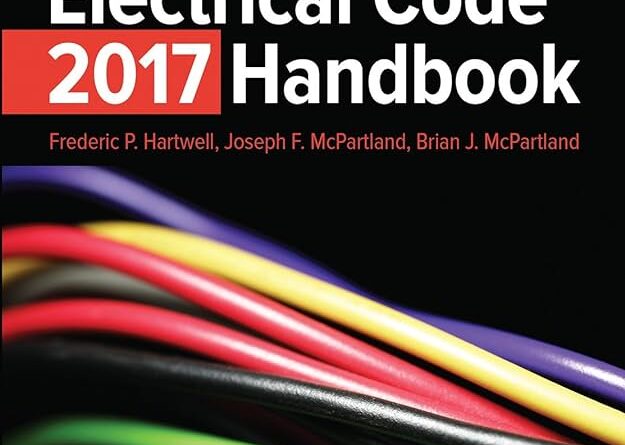
The National Electric Code (NEC) is updated every three years. This code is a standard for electrical installations in the United States.
It provides guidelines and regulations to ensure safety in electrical systems. The NEC is updated regularly to incorporate technological advancements and address emerging safety concerns. Adhering to the latest version of the NEC is essential for electricians, engineers, and contractors to ensure compliance and promote safety in electrical installations.
The updates incorporate changes in electrical practices and are based on extensive research, analysis, and input from industry experts. Staying current with the latest NEC revisions is crucial to maintaining electrical safety standards and avoiding potential hazards.
The Importance Of Regular Updates
The National Electric Code, also known as NEC, constantly evolves to ensure electrical safety standards keep pace with technological advancements and industry trends. Regular updates to the code are necessary to address emerging risks and challenges in the electrical industry.
Technology advancements are crucial in driving updates to the National Electric Code. As new technologies emerge, such as solar panels, electric vehicles, and smart home devices, the code must be revised to accommodate these innovations and establish guidelines for their safe installation and use.
These updates have a direct impact on electrical safety standards, as they help address potential hazards and improve the overall safety of electrical systems. By keeping up with the latest updates, electricians, contractors, and inspectors can ensure compliance with the most recent standards, reducing the risk of electrical incidents and accidents.
Regular updates to the National Electric Code are essential for maintaining electrical safety and protecting both individuals and properties from the dangers associated with outdated practices. Staying informed and implementing the latest code requirements is crucial for all professionals in the electrical industry.
Frequency Of Code Updates
Historical overview of code update frequency:
The National Electric Code (NEC) has a long history of updates. Initially established in 1897, it underwent periodic revisions as the electrical industry evolved. The earliest code updates were infrequent, with significant gaps between editions. However, as technology advancements accelerated, the NEC began to experience more frequent updates to keep up with emerging safety concerns and industry standards.
Factors influencing the frequency of updates:
Various factors contribute to the frequency of code updates. These include changes in electrical systems, technological advancements, increased understanding of electrical safety, and the need to address new risks and challenges. As electrical systems become more complex and new safety risks arise, it becomes crucial to regularly update the NEC to provide effective guidelines for electrical installations.
How often is the National Electric Code updated currently:
Currently, the NEC is updated every three years. The National Fire Protection Association (NFPA) oversees the code update process, involving a comprehensive review by expert committees and solicitation of public input. This regular update cycle allows for the timely incorporation of new safety standards, technological advancements, and industry best practices into the code.
The process of updating the code:
Updating the National Electric Code is a meticulous process. Expert committees examine proposed changes, considering the impact on electrical safety, industry practices, and technological advancements.
The committees review and deliberate on proposed revisions, considering public input and feedback. The final updated code is then published, providing electrical professionals, contractors, and authorities having jurisdiction with the most up-to-date and comprehensive guidelines for electrical installations.
Key Changes In Recent Updates
The National Electric Code (NEC) undergoes regular updates to ensure electrical installations adhere to the latest safety regulations. Major updates and revisions have been made in recent years to enhance electrical safety. These changes have a significant impact on electrical installations and promote safe practices.
Some of the key changes in the recent updates of the NEC include:
- Strengthened safety regulations: The updated code provisions focus on improving safety measures, such as enhancing grounding and bonding requirements, implementing safety disconnects, and enhancing safety standards for electrical equipment.
- Updated safety practices: The revised code emphasizes the importance of safety practices like proper installation, maintenance, and the use of protective devices to minimize the risk of electrical hazards.
- Greater emphasis on renewable energy: With the growing popularity of renewable energy sources, the NEC has incorporated updated guidelines to address the safe installation of solar panels, wind turbines, and other renewable energy systems.
These changes aim to protect individuals and properties from electrical accidents, reduce the risk of fires, and keep up with advancements in electrical technology. Electrical professionals can ensure compliance with safety standards and provide secure electrical installations by staying up-to-date with the latest NEC revisions.
Staying Up-To-Date With Code Changes
Staying updated with the latest changes in the National Electric Code (NEC) is crucial for professionals in the electrical industry. It ensures that they adhere to the most recent safety standards and regulations. Being aware of code updates is essential as it helps prevent potential hazards and ensures proper installation and maintenance of electrical systems.
There are various resources available for professionals to stay informed about code changes. Online platforms, such as the official NEC website and industry publications, provide access to the latest editions and updates. Additionally, attending training sessions and obtaining relevant certifications can enhance knowledge and understanding of the code.
Maintaining compliance with updated code provisions brings several advantages. Adhering to the latest safety standards increases the overall safety of electrical installations, reduces the risk of accidents, and minimizes liability. It also enhances the credibility and professionalism of individuals and businesses in the electrical industry.
Frequently Asked Questions For How Often Is The National Electric Code Updated
How Often Is Nec Code Updated?
The NEC code is updated every three years to incorporate new technologies and safety standards.
When Was The National Electrical Code Last Updated?
The National Electrical Code was last updated in 2020.
Is The 2023 Nec Code Book Out?
No, the 2023 NEC code book is not currently available. Our team closely monitors its release and will notify our customers once it becomes available. Stay tuned for updates!
How Often Does A New Electrical Code Book Come Out?
A new electrical code book is released periodically, usually every three years. The release frequency ensures that regulations and industry standards remain up to date.
Conclusion
The National Electric Code is updated every three years to keep up with advancements and changes in the electrical industry. Staying updated with the latest code editions is crucial for electricians, contractors, and homeowners to ensure safety and compliance with electrical standards.
By understanding the frequency of updates, individuals can stay informed and make necessary adjustments to their electrical systems. So, watch for the latest code revisions to stay on top of electrical safety practices.




